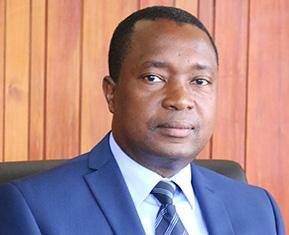
Former Reserve Bank Governor Dalitso Kabambe is demanding K75 million from Lilongwe Water Board (LWB) as damages for defamation.
Kabambe through his lawyers T.F & Partners has written the board about the demand from damages.
On May 20, the board published a list of names of people who were apprehended for allegedly stealing water from the board through illegal connections. Kabambe was one of the customers on the list.
He now argues that the board described him as a “culprit” who has been found guilty in a court of law or imprisoned for water theft.
According to Kabambe, the description is false because he has not been prosecuted before the court of law neither has he been arrested in relation to the same.
“The defamation statement has greatly injured his character, credit and reputation.
“Based on the foregoing our client demands an apology to be published in the same newspaper that the defamatory statement was published. Our client also demands the sum of K75,000,000 as damages for the same,” reads part of the claim.
Kabambe who has shown interest to vie for the Democratic Progressive Party (DPP) presidency was included in a “name and shame” list as the board said there was illegal water connection at his house for several months.
Illegal water connections are a big problem for the board as it loses 44, 000 cubic meters (44 million litres) of water daily which are equivalent to 40 percent of LWB’s daily production.
It is estimated that 10 percent of LWB’s 93,000 customers are involved in some form of water theft, resulting in water losses of approximately 2.2 million Cubic Meters (2 billion litres) annually. This is equivalent revenue loss in excess of K2.4 billion- enough to rehabilitate approximately 160 Kilometers of a pipe network that would benefit over 12,000 customers.
Illegal connections are where LWB customers and potential customers tamper with, either the water meters or the service connection, to reduce or avoid water bills; and this directly results in LWB losing revenue in under or unbilled consumptions. In other instances, customers illegally reconnect their water supply when it has been disconnected due to unpaid bills.














